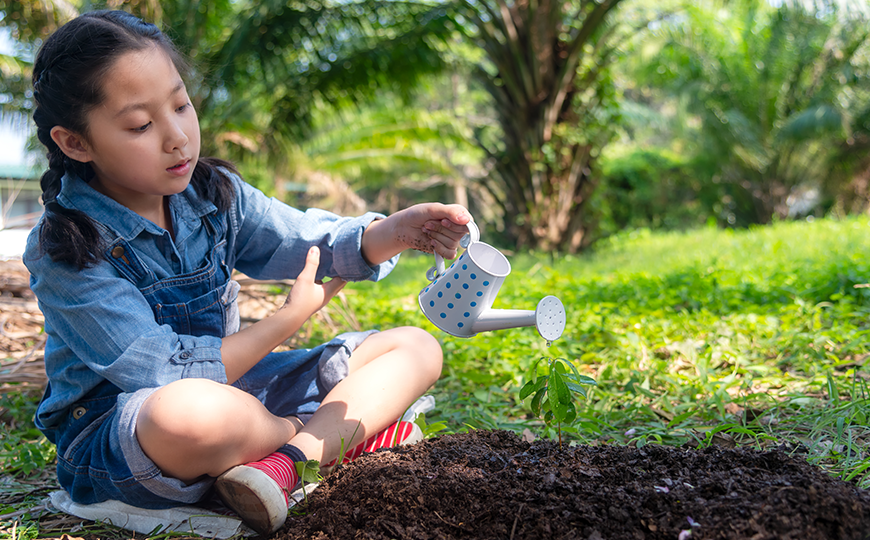https://www.infirmiere-canadienne.com/blogs/ic-contenu/2025/08/18/resiliente-au-changement-climatique
An ‘inspirational’ perspective on nursing education and planetary health
By Sophie R. Walker
August 18, 2025
 istockphoto.com/Wand_Prapan
istockphoto.com/Wand_Prapan
Embracing the responsibility for planetary health aligns with the ethical responsibilities of nurses to reduce potential future risk and preventable harm to patients.
Tell me about your interest in climate action. What got you interested in this topic?
When I was a second-year nursing student, I was eager to dive into research and use my new-found skills to drive change in needed areas.
 Courtesy of Sophie R. Walker
Courtesy of Sophie R. Walker
“I wanted to inspire fellow nursing students to embrace climate action and become environmental stewards,” Sophie R. Walker says.
When a nursing instructor/researcher, Jennifer L. Morin, introduced me to the Wawanesa Climate Champions: Youth Innovation Grant, I was interested and ready to get involved.
Jennifer enlightened me about the issues faced in nursing education. Like many students, I had not received any education on environmental awareness, sustainability in health care, or how planetary health will affect future patients.
Climate change is one of the greatest health challenges of the 21st century, and with environmental concerns frequently in the news, I wanted to inspire fellow nursing students to embrace climate action and become environmental stewards.
How have you turned this passion into action?
In April 2024, I was thrilled to be awarded a $30,000 research grant to launch a climate adaptation and mitigation project. The project, “Climate-Resilient Nursing: Building Student Capacity in Healthcare Settings,” aims to equip future nursing professionals with the knowledge and skills to integrate climate adaptation and mitigation strategies into their nursing practice.
Over the summer of 2024, I completed a comprehensive literature review on planetary health, the role of nurses in addressing planetary health, the current state of nursing education on these issues, and strategies to improve sustainable health-care practices. This review highlighted the need for action and filled me with hope that our generation could drive meaningful change.
To deepen my understanding, I enrolled in courses from the Canadian Association of Nurses for the Environment (CANE) and the Canadian Association of Physicians for the Environment (CAPE).
Learning about environmental justice from the environmental racism course provided by CANE, and the introduction to sustainable health systems course from CAPE, set a foundation for the development of the project, which will unfold throughout 2025. Indeed, in May, I was proud to present my research at the Western North-Western Region Canadian Association of Schools of Nursing conference in Kelowna.
From your perspective, what is the knowledge every nurse requires to contribute to planetary health/sustainable health-care systems?
Embracing the responsibility for planetary health aligns with the ethical responsibilities of nurses to reduce potential future risk and preventable harm to patients.
In addition, nurses need the knowledge to become environmental stewards to ensure that health-care efforts contribute to a healthier planet. For example, I think every nurse needs to know how much carbon emissions their workplace emits, the main contributors, the life cycle of medical supplies they use, what their hospital’s strategic plan is on sustainability, and how they can get involved.
Based on your experiences, are students becoming more engaged in planetary health? Why do you think this is the case?
Based on my experience and research, students believe that it is important to have planetary health education in the nursing curriculum.
I believe that there is little engagement from nursing students in planetary health because of their lack of education and support to take action. I think students will become more engaged when they are educated on the impact that they have on the environment as nurses and the power that they hold to lead in climate-action initiatives and planetary health within their school and workplace.
I think nursing students want to take action to help take care of the planet; they just don’t know where to start, or what opportunities are available to them.
From your perspective, how is sustainability content best integrated into nursing education?
I envision a course dedicated to planetary health in nursing at Red River College Polytechnic.
Barbara Astle, a nursing professor at Trinity Western University, is leading planetary health education in nursing. I have had inspiring conversations with her, and she is going to be a guest speaker along with others from CANE and CAPE in the delivery of an educational workshop.
I am also working with research advisors Jennifer Morin and Deb Gural, who have been supporting me throughout my research journey.
I think the best place to start for planetary health and climate action integration into the nursing curriculum would be the completion of a Planetary Health Report Card.
The report card is a student-driven, metric-based tool that aims to evaluate health professional schools in five main categories: 1) curriculum, 2) interdisciplinary research in health and environment, 3) community outreach and advocacy, 4) support for student-led initiatives, and 5) campus sustainability.
The goals of the Planetary Health Report Card are to identify the institution’s planetary health strengths and opportunities for growth; assemble synthesized, institution-specific information on planetary health resources useful for faculty and students; facilitate cross-institutional sharing of planetary health resources that can catalyze curricular innovation; establish a global interprofessional community of students and faculty; track progress in implementing planetary health; and advance the planetary health movement in pursuit of a healthier and more equitable world.
I believe the report card will lay a solid foundation for nursing faculty to be able to build on and implement sustainability into their courses and workplaces effectively.
With the inspiration from Barbara and her students at Trinity Western, and the support from Jennifer and other Red River College Polytechnic (RRCP) faculty, we hope to start using the Planetary Health Report Card here at RRCP in September 2025.
How can clinical instructors support concepts of sustainability in clinical practice?
Clinical instructors are positioned to become leaders in climate action within the workplace, influencing students, colleagues and institutional policies.
By advocating for sustainable practices and integrating them into clinical education, clinical instructors can inspire a new generation of nurses to prioritize environmental stewardship, ultimately contributing to a more sustainable health-care system.
By shaping nurses’ ability to participate in sustainable health-care practices, clinical instructors can introduce these concepts within clinical practices and help them get involved in climate-action initiatives, like green teams.
Participating in hospital green teams before and after graduation will contribute to nurses’ professional development and create more opportunities for leadership.
Additionally, instructors should consider furthering their own education by enrolling in relevant courses or becoming members of CANE or CAPE. Participating in these organizations would help them keep up to date on current issues in sustainable health care and inform them how to take climate action within their workplace.
Staying informed about the latest developments in sustainable health care enables instructors to lead by example and share valuable insights with their students. Actively engaging in sustainability initiatives, continuously seeking out resources, and empowering nursing students to become advocates for change are all ways that can support concepts of sustainable clinical practice.
Sophie R. Walker is a nursing student at Red River College Polytechnic in Winnipeg. She was awarded the Wawanesa Climate Champions: Youth Innovation Grant for her research project on climate-resilient nursing.
#opinions
#environmental-health
#equity-social-justice
#global-health
#nursing-education
#public-health